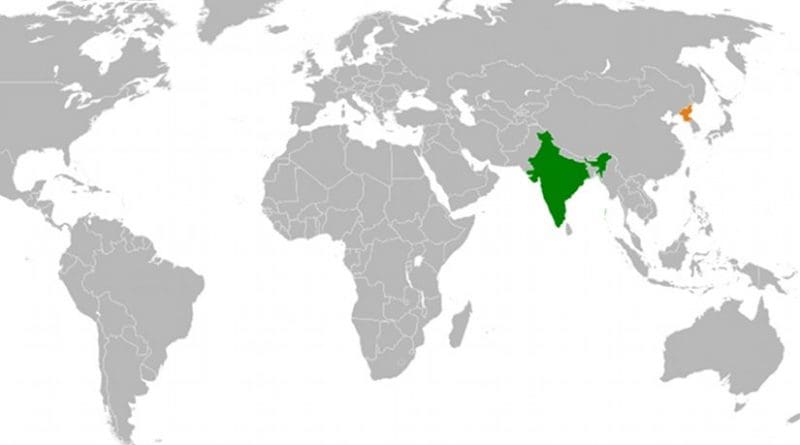Indian-DPRK Illicit Connection: The Axis Of Anxiety – OpEd
By Rabia Javed*
Among the current problems that reside in the international forums, serious questions arise regarding India’s connection with North Korea. Eyes have been glued to great power dynamics in the Indo-Pacific. India’s relationship with North Korea has done, and continues to do, real harm to U.S. interests. North Korea has punched a big hole through the already frayed global nuclear order. The effects of its continuous nuclear tests will ricochet the world over, causing a change in the Asian balance of power.
Most recently the Panel of Experts on DPRK Sanctions Regime – established under UNSCR 1874 (2009) – submitted a report to the UNSC on Feb 7, 2020, in accordance with paragraph 2 of UNSCR 2464 (2019). The document was issued by the UNSC for the consumption of all member states on April 13, 2020.
Report once again reveiled that Indians have flagrantly violated international trade sanctions against DPRK and developed uninterrupted trade and diplomatic relations. India is among a handful of countries maintaining long-term, close ties with Pyongyang despite of the Kim Regime’s nuclear belligerence. India has longstanding diplomatic ties with North Korea and even under pressure from the U.S., it refused to reduce its diplomatic engagement with Pyongyang.
Previously, on many occasions, India has already challenged the international strategic order and nobody cares about it, especially the great powers. It is not a rocket science to realize what New Delhi wants to achieve through its engagement with DPRK. Where things stand now are really complex with respect to current security structure of the region. There have been authentic reports that the Center for Space Science and Technology in Asia and the Pacific (CSSTEAP) located in Dehradun, India, had been providing technical education to North Korean scientists.
Another ISIS report is based on the findings by the UN Panel of Experts (PoE) on DPRK that was established pursuant to UN Security Council Resolution 1874 (2009) and has an obligation to report its findings and recommendations annually on the implementation of Security Council Resolutions. The report states that:
India is amongst the 16 countries that “failed to prevent, prohibit, or act upon alleged procurement violations, where sanctioned goods and minerals, such as coal, oil, and petroleum products, were imported by the DPRK”, in violation of the UN Sanctions Regime. The report further states that India is one of the countries that have failed to improve its domestic business and trade regulatory measures and is also amongst the three countries involved in exporting industrial machinery to North Korea.
Under UN Security Council Resolution 2371 of 2017, there was a ban on the import of certain sanctioned goods and materials from North Korea, and the 13 countries, including India, were found lagging in their implementation of this resolution. Additionally, around 30 North Korean scientists have already been trained at the Indian institutes in violation of the UN sanctions which shows that DPRK’s nuclear capability has gone from strength to strength with India’s support.
Ostensibly, the current PoE report and the earlier ones highlighted glaring discrepancies in India’s export control system, which are contradictory to the claim made by India of having an impeccable security record.
The gravity of the situation is clearly on display that despite knowing the shortcomings highlighted by the PoE, country like India has been able to get membership of the three export control regimes. These include The Missile Technology Control Regime, Wassanar Arrangement and The Australia Group. The countries that are pushing for India’s inclusion in the Nuclear Suppliers Group need to evaluate the benefits of making India-specific exemptions, as it could reduce the incentives for India to take corrective measures and continue with its current complacency. The world must muster the political will to do this. Can it afford yet more nuclear breakouts before it takes the nuclear bull by the horns?
Indeed, North Korea’s nuclearization exposes the folly of relying on purely physical controls, of the kind imposed by International Atomic Energy Agency safeguards under the NPT, to prevent nuclear materials from being put to military use. Hence, by treating India as an exception, reflects the general disdain for a rule-based international system in making another pariah state.
*Rabia Javed is a freelance writer

